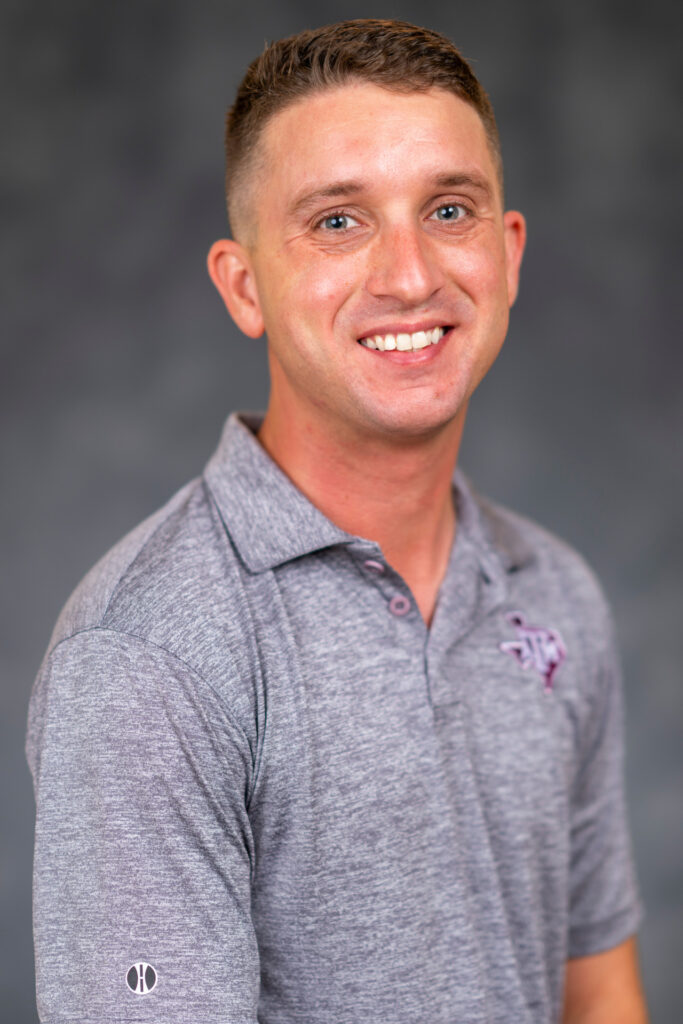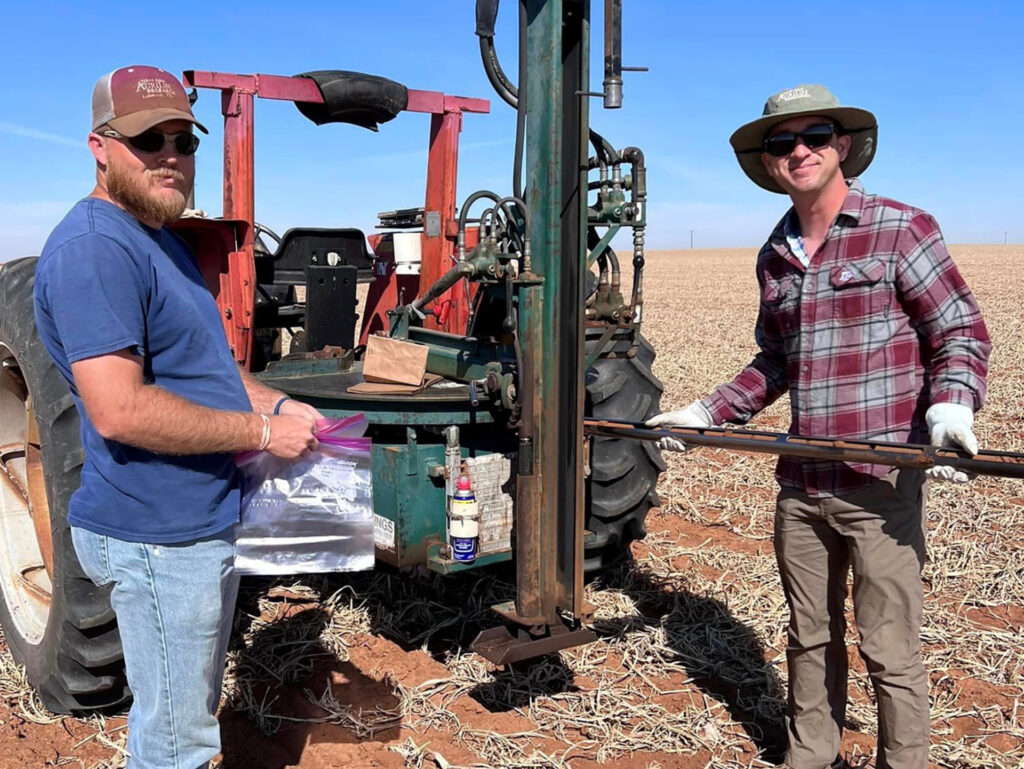Burke steps into cropping systems research position at Lubbock
Texas A&M AgriLife position will focus on enhanced soil and water conservation, resilient crops
Joseph Burke, Ph.D., the new cropping system agronomy and weed scientist with dual appointments to Texas A&M AgriLife Research and Texas A&M AgriLife Extension Service at Lubbock, wants to make sure producers see the benefit of his work on their farms.

“In my new role, I will support the development and understanding of resilient cropping systems on the High Plains,” said Burke, who is also an assistant professor in the Texas A&M College of Agriculture and Life Sciences Department of Soil and Crop Science.
“With a basis of agronomic soil science, I am focusing on how I can make it relatable to a producer where they can see the benefit on their farm because what works in Lamesa may not work in Stanton, or it’s not going to work in Plainview.”
Burke, a native of Bandera, didn’t have to go far to begin his new job.
He began working with AgriLife Research in Lubbock in 2015 while completing his master’s at Texas Tech University. He worked as a graduate research and teaching assistant while attending graduate school at Texas A&M University and completed his postdoctoral training in soil carbon management with Katie Lewis, Ph.D., AgriLife Research soil chemistry and fertility scientist in Lubbock.
“The nice thing about working along with Katie and Wayne Keeling, who was the AgriLife Research system agronomist and has now retired, is that I’m taking what they were interested in and applying my interest to it,” he said. “So, we just get a bigger piece of the pie that can benefit the producers every time we add somebody to the team.”
Building a research program
Burke said his priority is to determine “how do we make sure we’re getting the most bang for every drop of water, and ensuring there is enough water so that 50 years from now, somebody is still needed in my position to work on cropping systems because we still have an Ogallala Aquifer to draw from.”
Cotton, and the other commodities grown on the High Plains, like corn, sorghum and wheat, are critical to this region and state, he said. He sees his job as helping ensure that regional agricultural production will continue to thrive.

“I grew up on an Angora goat ranch in South Texas, and it was all about the systems thinking,” Burke said. “My parents always took me to Soil and Water Conservation Society meetings, where my passion for agriculture and conservation really took root. My stepdad always taught us to think of the big picture and how all the pieces fit together. So, I definitely grew up with this mindset that you have to think about the whole system. You can’t just focus on one little bit piece of it.”
He said his research program has three prongs or goals: comprehensive soil and water conservation, resilient cropping systems; and enhanced water availability in cropping systems long-term.
Burke said it had been a while since soil and water conservation was the sole focus of a research program at Lubbock, specifically erosion control. He now works alongside his mentors, Lewis, whose primary focus is soil and plant nutrition, and Paul DeLaune, Ph.D., AgriLife Research environmental soil scientist in Vernon.
“I want to focus on ensuring people don’t complain about West Texas because of the dust storms,” he said. “I want to develop comprehensive, resilient cropping systems that can handle potential impacts from the changing climate, such as drought stress, by managing precipitation in the winter and summer months.”
Burke said his role is to integrate the outstanding AgriLife Research and AgriLife Extension programs that already exist and take that knowledge to the producer’s field.
“We want to make sure producers receive that knowledge because I can do research all day long, but if the producers don’t adopt those practices, we’re not going to see those incremental changes,” he said.


